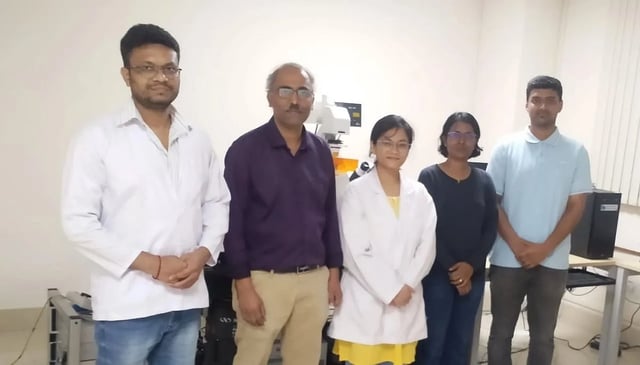Overview
- The sensor, developed by IIT Guwahati researchers, uses a 'turn-on' fluorescence mechanism to detect cyanide with high specificity under UV light.
- It achieves a detection limit of 0.2 μM, far below the WHO's permissible cyanide limit of 1.9 μM in drinking water.
- Successfully tested on river water, tap water, and breast cancer cells, it demonstrated 75–93% accuracy and strong potential for medical and forensic applications.
- The sensor is compatible with portable paper-strip testing and emits a bright cyan fluorescence upon cyanide detection.
- Researchers are exploring its logic-gate functionality for integration into smart, real-time hazardous substance detection systems.


